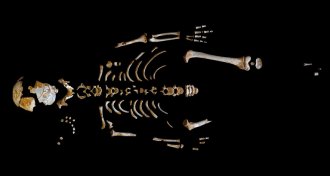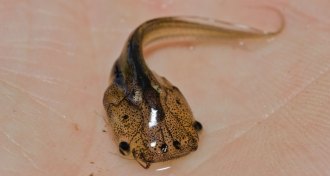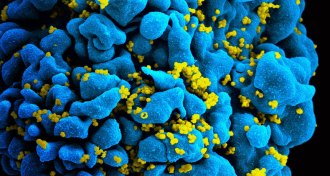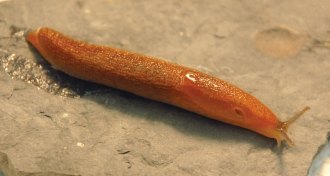Humans
Sign up for our newsletter
We summarize the week's scientific breakthroughs every Thursday.
-
 Genetics
GeneticsA mutation may explain the sudden rise in birth defects from Zika
A mutation in a protein that helps Zika exit cells may play a big role in microcephaly.
-
 Health & Medicine
Health & MedicineAbout 1 in 5 teens has had a concussion
Almost 20 percent of U.S. teens have had at least one diagnosed concussion in the past, an analysis of a 2016 national survey finds.
-
 Health & Medicine
Health & MedicineAbout 1 in 5 teens has had a concussion
Almost 20 percent of U.S. teens have had at least one diagnosed concussion in the past, an analysis of a 2016 national survey finds.
-
 Anthropology
AnthropologyNeandertal kids were a lot like kids today — at least in how they grew
Ancient youngster’s spine and brain grew at relatively slow pace.
By Bruce Bower -
 Health & Medicine
Health & MedicineFrom day one, a frog’s developing brain is calling the shots
Frog brains help organize muscle and nerve patterns early in development.
-
 Health & Medicine
Health & MedicineTelling children they’re smart could tempt them to cheat
Kids who were praised for being smart were more likely to cheat, two studies suggest.
-
 Psychology
PsychologyConfusion lingers over health-related pros and cons of marijuana
50 years ago, the effects of chronic marijuana smoking on mental health were hazy. They still are.
By Bruce Bower -
 Health & Medicine
Health & MedicineBy ganging up, HIV antibodies may defeat the virus
A duo or trio of powerful antibodies was effective at stopping an HIV-like infection in lab monkeys, two studies find.
-
 Astronomy
AstronomyReaders ponder mini-spacecraft and Canaanites’ genomes
Readers have questions about miniature spacecraft project and Canaanite genealogy.
-
 Environment
EnvironmentThe list of diseases linked to air pollution is growing
Air pollution levels have come down since the 1970s, but smog is being linked with a growing list of diseases, including dementia, obesity, diabetes and even Parkinson’s.
By Laura Beil -
 Agriculture
Agriculture‘Big Chicken’ chronicles the public health dangers of using antibiotics in farming
A new book takes a hard look at the chicken industry for its role in fostering antibiotic resistance.
-
 Animals
AnimalsAnimal goo inspires better glue
Researchers are turning to nature to create adhesives that work in the wet environment of the human body.